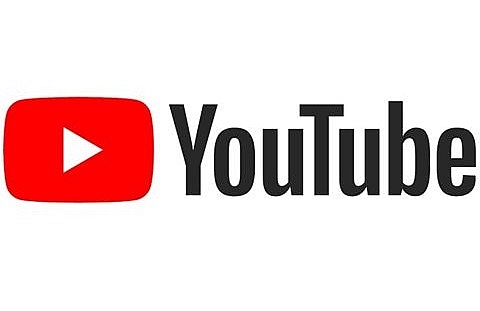MIC warns YouTube over violations
 |
| YouTube logo |
In Document No.938/PTTH-TTDT, the latest revelation published by the Ministry of Information and Communications’ (MIC), the Authority of Broadcasting and Electronic Information (ABEI) stated that the MIC has discovered numerous videos with content going against the Vietnamese government’s policies and other harmful videos posted on the YouTube platform since early 2017. Moreover, YouTube has been making significant revenue and has shared part of it with the content creators by inserting advertisement into the videos.
These are also violations of local advertising regulations, which have badly affected the prestige of brands running advertisements on the platform. To resolve the issue, the MIC sent warning notices to companies advertising on YouTube and has worked with advertising agencies and representatives of Google – YouTube’s parent company – but they have yet to fully settle the issue.
The ABEI previously pointed out Google’s three biggest violations in Vietnam, including its loose content management regime, uncontrolled advertising activities on the videos and Google Adsense, and allowing users to directly buy advertisements from YouTube and Google without local advertising agencies.
YouTube currently has about 55,000 harmful videos violating local regulations and the ABEI has partnered with Google to remove nearly 8,000 videos. However, due to insufficient content management, YouTube appears impotent in preventing the uploading of these videos.
Facing the increasing spread of harmful videos on the video platform, the ABEI also required YouTube to file a report explaining the situation before June 17.
Additionally, the MIC last week also announced the list of 21 companies running advertisements on harmful videos appearing on YouTube, including Huawei Technologies Vietnam, Shopee, VNG, Watsons, and Yamaha Motor Vietnam.
Huawei Technologies Vietnam and VNG also announced to temporarily halt working with YouTube in advertisements until YouTube’s official feedback on inserting advertisements into harmful videos.
Responding to VIR, the representative of Shopee said that as soon as receiving the MIC’s announcement, Shopee has worked with Google to remove its advertisements from harmful videos on YouTube. In addition, the company also sent notices to its advertising agencies to ensure all of its advertising activities in line with local regulations.
However, it is still questionable whether Google readily provides the list to Shopee, as the tech giant remains quiet about its efforts to resolve YouTube’s problems as well as handle the MIC’s accusations.
In a previous document sent to the MIC, YouTube even argued that a lot of the harmful videos have been made by Vietnamese content creators, saying that after receiving the YouTube Silver and Golden Play Buttons, the content creators began uploading harmful videos instead of keeping with the healthy content from before.
The ABEI’s counter-claim was that YouTube’s filter system does not really work. For instance, the system does not flag videos with acceptable titles but pornographic content. Additionally, if the video is put into the category for children’s videos instead of adult videos, or anti-government propaganda is categorised as entertainment instead of politics, they can fly below YouTube’s radar.
In addition, the video platform’s censorship also depends on post-verification, allowing users to easily upload harmful videos, while censorship takes a lot of time. It took the ABEI around 18 months of working with Google to remove nearly 8,000 harmful videos, while uploading a video only takes a few minutes.
Regarding solutions, Le Quang Tu Do, deputy director of the ABEI, said that in the coming time, the authority will require YouTube to force its Vietnamese channels to register with government agencies to be examined before they can earn money from the platform. Violating channels will no longer be allowed to earn money from YouTube. The MIC will also co-operate with the State Bank of Vietnam and other authorities to supervise the transactions with YouTube and Google.
In addition, the authority will require YouTube to remove violating videos from the pane of suggested videos and prevent users from reuploading violating videos. The platform will also need to firmly co-operate with the MIC to remove harmful videos and channels.
More importantly, the MIC will also require Google to open a representative office in Vietnam and take its obligations in tax and content management more seriously.
What the stars mean:
★ Poor ★ ★ Promising ★★★ Good ★★★★ Very good ★★★★★ Exceptional
 Tag:
Tag:
Related Contents
Latest News
More News
- State corporations poised to drive 2026 growth (February 03, 2026 | 13:58)
- Why high-tech talent will define Vietnam’s growth (February 02, 2026 | 10:47)
- FMCG resilience amid varying storms (February 02, 2026 | 10:00)
- Customs reforms strengthen business confidence, support trade growth (February 01, 2026 | 08:20)
- Vietnam and US to launch sixth trade negotiation round (January 30, 2026 | 15:19)
- Digital publishing emerges as key growth driver in Vietnam (January 30, 2026 | 10:59)
- EVN signs key contract for Tri An hydropower expansion (January 30, 2026 | 10:57)
- Vietnam to lead trade growth in ASEAN (January 29, 2026 | 15:08)
- Carlsberg Vietnam delivers Lunar New Year support in central region (January 28, 2026 | 17:19)
- TikTok penalised $35,000 in Vietnam for consumer protection violations (January 28, 2026 | 17:15)






















 Mobile Version
Mobile Version